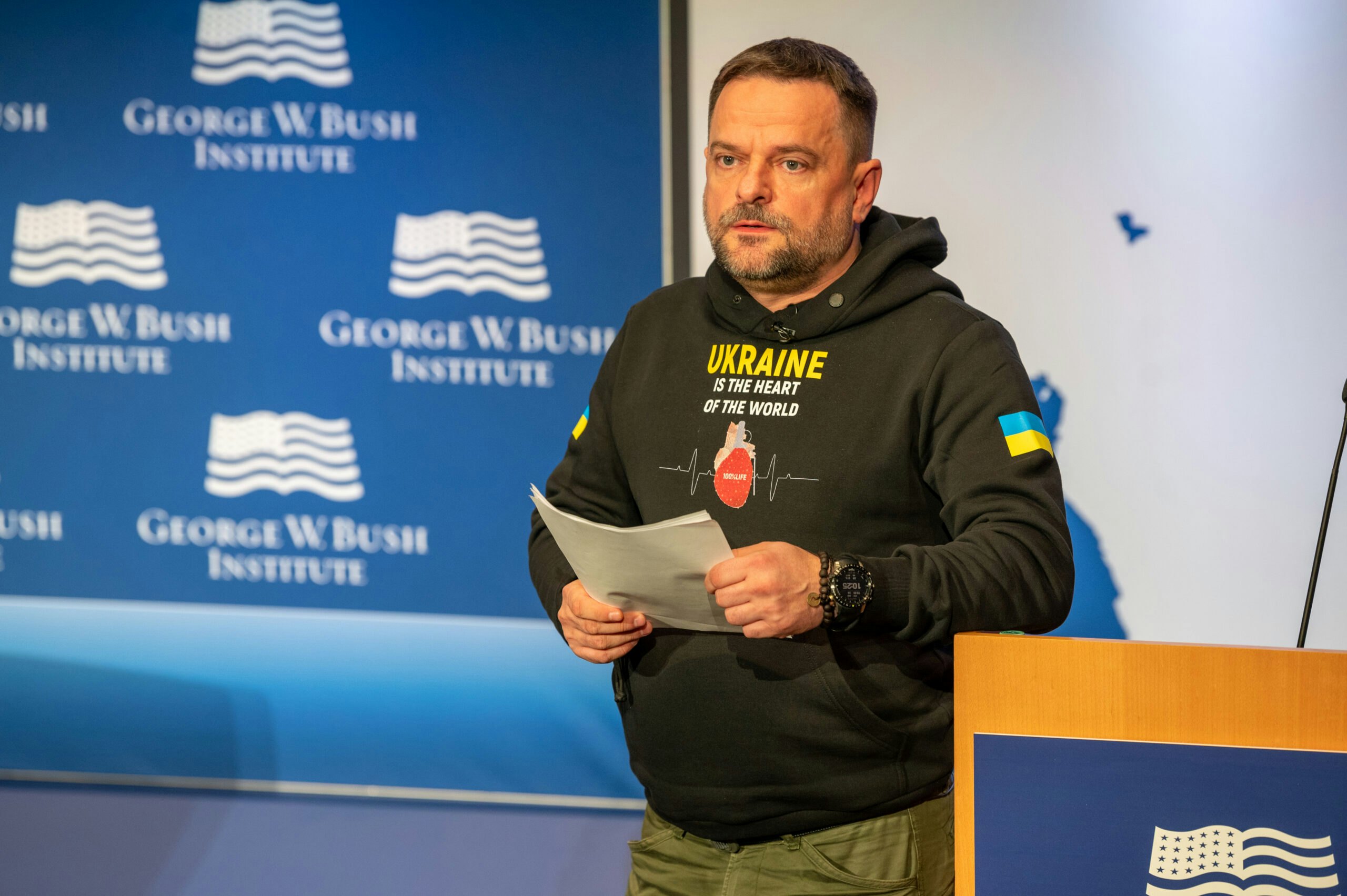Through the power of data, we are able to truly go further for women living with HIV around the world, saving and improving more lives and helping end AIDS and cervical cancer in Africa.
Data is knowledge and knowledge is power. Data shows us what is going well and what needs improvement. In public health, we collect and analyze data to better serve people. We look at program results, run statistical tests, and gather perspectives from clients, community members, and service providers to give the numbers context and develop solutions that strengthen programs.
PEPFAR, the U.S. President’s Emergency Plan for AIDS Relief, uses a systematic, granular, and integrated approach to data review—measuring what happens, often down to the site level, by age and gender, across the 54 countries it supports. Go Further, the Bush Institute and PEPFAR’s partnership to end AIDS and cervical cancer in Africa, along with UNAIDS and Merck, is governed by this same level of rigorous data review. To date, PEPFAR has dedicated more than $93 million to Go Further and is responsible for program oversight. Go Further works not only to ensure that American taxpayers’ money is well spent, but also to provide the best services for women living with HIV.
Through Go Further, PEPFAR supports screening for cervical cancer and treatment for precancerous lesions. Because women living with HIV are six times more likely to develop cervical cancer than their HIV-negative counterparts, routine screening is critical to prevent progression of precancerous lesions to advanced cancer. PEPFAR aims to screen half of all women living with HIV who are on antiretroviral therapy and aged 25 to 49 years annually in the 12 Go Further countries. For fiscal year 2021, this calculation represents over two million women eligible for cervical cancer screening. For women found positive for precancerous lesions, we aim to provide same-day treatment using a “screen and treat” approach.
Data on women living with HIV receiving services through the Go Further partnership include: (1) screening type; (2) screening results; (3) treatment type; (4) age; and (5) information on the facility and implementing partner providing services. To gain a comprehensive understanding of program results, and complement the quantitative data we collect, we also gather qualitative information through conversations with service providers, clients, and program staff. All of these data inform and improve program oversight and accountability.
With these data, we monitor program scale up, identify areas for quality improvement interventions, advocate for expansion of services, and bring in additional partners to address service gaps. Though PEPFAR collects cervical cancer data semi-annually, some programs collect their data more often. A recent data story highlights how the Mozambique program’s routine data collection informed their rapid scale-up of cervical cancer screening and treatment services.
Since Go Further began in 2018, PEPFAR has provided over 1.5 million cervical cancer screenings to women living with HIV; 1.3 million, or 87%, of these were reported by women as their first screening. Six percent of all screenings have been positive for precancerous lesions, which is within the expected range among women living with HIV based on available research; 66% of these cases have been treated by either cryotherapy (65%) or thermocoagulation (14%), which can be done the same day for smaller lesions, or Loop Electrosurgical Excision Procedure (LEEP), an outpatient procedure used for removing larger lesions (21%). The treatment rate has steadily increased since program implementation began and continues to be an area of focus as our aim is to treat at least 90% of women identified with a precancerous lesion.
By combining quantitative and qualitative data, we have helped to identify and address key challenges, including reducing stigma, ensuring equitable distribution of treatment modalities, and aiding clients in physically accessing treatment services where transportation and/or distance may be barriers. Where the data suggests difficulties across programs, the data can support cross-country-program dialogue so that innovations and best practices can be shared across the Go Further countries to improve quality of services for clients.
Through the power of data, we are able to truly go further for women living with HIV around the world, saving and improving more lives and helping end AIDS and cervical cancer in Africa.




























